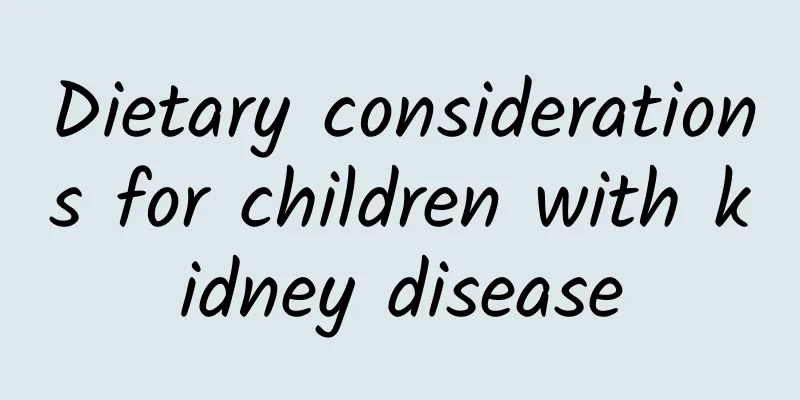Why do newborns have jaundice?

|
Neonatal jaundice is a common phenomenon caused by abnormal bilirubin metabolism, which may be caused by physiological factors, pathological factors, or maternal-fetal blood type incompatibility. Depending on the cause, jaundice can range from mild to severe, requiring differentiated diagnosis and treatment. 1) Physiological reasons Most neonatal jaundice is physiological jaundice, which is a natural phenomenon for newborn babies to adapt to life in the outside world. After birth, the fetal hemoglobin in the baby's body is gradually replaced by adult hemoglobin, and during this process, the large-scale decomposition of red blood cells will release bilirubin. However, since the liver of the newborn is not yet fully developed, the ability to process bilirubin is limited, resulting in increased bilirubin levels in the blood and jaundice. Physiological jaundice usually appears 2-3 days after birth, is most obvious 4-6 days, and gradually subsides in 10-14 days, and does not affect health. Recommendations and treatment: By ensuring that newborns have adequate intake of breast milk or formula milk, the metabolism and excretion of bilirubin can be promoted, and jaundice can usually subside naturally. In severe cases, light therapy can be used under the guidance of a doctor to promote the decomposition of bilirubin. 2) Pathological causes If the jaundice is severe, lasts a long time, or has other unusual symptoms, it may be pathological jaundice, which is usually more serious. For example: -Hemolytic jaundice: Blood type incompatibility between mother and baby, such as ABO or Rh blood type incompatibility, can lead to the destruction of the newborn's red blood cells and the release of large amounts of bilirubin. - Infectious jaundice: Neonatal infections (such as sepsis, TORCH syndrome) can impair liver function or increase bilirubin production. -Abnormal development of the liver or bile duct: Certain congenital diseases (such as biliary atresia, Crigler-Najjar syndrome) affect the excretion of bilirubin and may cause severe jaundice. Recommendations and treatment: Pathological jaundice requires early medical attention, and the cause should be determined through blood tests, imaging tests, etc. Treatment options include blood transfusion (for hemolytic jaundice), antibiotic treatment (for infectious jaundice), or surgery (such as biliary atresia, which requires cholangiography and surgical repair). 3) Other possible factors -Premature birth: Premature babies are more likely to have more severe jaundice due to immature liver function. - Improper feeding: Insufficient feeding can affect the excretion of bilirubin and cause breast milk jaundice or hunger jaundice. Recommendations and treatment: Premature infants need to be kept warm and given nutritional support, while the degree of jaundice must be strictly monitored. For breast milk jaundice, breastfeeding can be stopped for a short period of time to see if the jaundice is alleviated, and then consider improving the feeding method. Neonatal jaundice is divided into different types and severity levels. Most of them are physiological jaundice, which can disappear naturally through normal feeding, but pathological jaundice needs to be treated as soon as possible to avoid serious complications. If parents find that the baby's jaundice is abnormally aggravated, lasts for more than two weeks, or is accompanied by drowsiness, loss of appetite, etc., they should take the baby to the doctor immediately, and the doctor will develop an appropriate treatment plan. |
<<: Can Kawasaki disease in children be cured?
>>: Which department should I go to for diagnosis of ADHD?
Recommend
What are insect diseases?
Worm diseases may sound like something out of a h...
What are the clinical manifestations of acute laryngitis in children?
What are the clinical manifestations of acute lar...
What should mothers with breast-feeding jaundice pay attention to in their diet? Is it helpful for mothers with breast-feeding jaundice to drink more water?
Jaundice in children is a relatively common pheno...
What are the symptoms of pneumonia in children
Pneumonia is not uncommon. Since children have ve...
Things to note in the late stage of children's kidney disease
In today's life, kidney disease affects a wid...
My baby has allergic rhinitis and always coughs
If a baby has allergic rhinitis and always coughs...
What is the cause of polio?
After suffering from polio, many parents are not ...
What are the symptoms of neonatal jaundice?
Symptoms of neonatal jaundice include yellowing o...
Can children with cough variant asthma be cured? Treatment methods for children with cough variant asthma
Cough variant asthma in children is a concern for...
How to treat ADHD in children? What should be paid attention to in the diet of ADHD in children?
Attention deficit hyperactivity disorder in child...
What are the causes of indigestion in children? Do children with indigestion need to reduce their food intake?
Infant indigestion is a very serious phenomenon. ...
What is the cure standard for breast milk diarrhea?
What is the cure standard for breast milk diarrhe...
Factors causing diarrhea in children
Among pediatric gastrointestinal diseases, the mo...
What factors induce acute laryngitis in children?
Children's immune systems are not fully devel...
Can children's cold antipyretic syrup and children's paracetamol and chlorpheniramine be taken together?
It is not recommended to take cold and fever syru...









